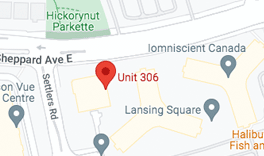Robotics Programmer
Many Manufacturing Processes Require the Skills of a Robotics Programmer
 The influences of technology are clearly evident in many aspects of daily life that at one time were considered merely to be the folly of science fiction authors and screen writers. Perhaps with the notable exception of time travel, several figments of sci-fi imaginations have come to fruition – advancements in space travel, undersea exploration, and nuclear power generation are all examples of human inventiveness which, not so long ago, were deemed inconceivable or unfathomable.
The influences of technology are clearly evident in many aspects of daily life that at one time were considered merely to be the folly of science fiction authors and screen writers. Perhaps with the notable exception of time travel, several figments of sci-fi imaginations have come to fruition – advancements in space travel, undersea exploration, and nuclear power generation are all examples of human inventiveness which, not so long ago, were deemed inconceivable or unfathomable.
This same type of ingenuity is also quite prevalent within the manufacturing sector; one of the many innovations in this field has been the introduction of robots/robotic systems that are capable of performing duties that humans cannot or choose not to complete for a variety of physical, functional, or safety reasons. While the responsibility for designing such devices/systems resides with robotics engineers, it is the job of robotics technicians or programmers to actually bring them to life and put them to work, so to speak.
Within the job description of a robotics programmer, one might find many or most of the following duties:
- Assist engineers in robotics design/configuration
- Build or assemble the robotic devices or systems
- Complete corrective or preventative maintenance
- Dissemble, repair, reassemble robots or components
- Test performance; record test procedures and results
- Install, program and repair controllers, tools, conveyors
- Inspect installation sites; train operators on robotics usage
- Development of computer software and/or path programming
As a result of effectively implementing the above and perhaps additional responsibilities, a robotics programmer can streamline/improve the manufacturing/production processes with respect to:
- Cost savings
- Operator safety
- Productivity/output
- Reduced cycle times
In terms of employment opportunities for a robotics programmer, some of the industries or sectors that now commonly utilize robotics technology include:
- Agriculture
- Automotive
- Construction
- Entertainment
- Transportation
- Military Defence
- Aviation/Aerospace
Educational requirements to enter the field of robotics programming typically consist of a two-year program to obtain an associate’s degree in electrical engineering technology or mechanical engineering technology. Studies should place an emphasis on such subject matter as computer programming and integration, motion programming, and conveyor systems.

Connecting Top Talent
With Great Companies
Find your ideal position today
An Agency with Experience in Manufacturing Staffing Can Be a Valuable Asset
 For individuals seeking entry-level or advanced employment opportunities as a robotics programmer, they would be well-served to capitalize on the experience and resources of a professional placement agency such as Winters Technical Staffing in Toronto.
For individuals seeking entry-level or advanced employment opportunities as a robotics programmer, they would be well-served to capitalize on the experience and resources of a professional placement agency such as Winters Technical Staffing in Toronto.
For more than 40 years, staffing consultants from Winters Technical Staffing have been successfully fulfilling the recruiting needs of employers in the manufacturing/production sector, both within and outside Toronto and the GTA. Throughout that time, consultants from Winters Technical Staffing have developed an integral knowledge of the skills needs of these employers, including those competencies associated with robotics programmers, along with strong working relationships with a large number of hiring managers.
Consequently, this insight and networking can prove to be valuable assets to candidates seeking robotic programmer jobs, particularly in relation to:
- Streamlining job search efforts
- Accessing non-publicized job postings
- Targeting specific employers or industries
- Differentiating entry-level and advanced opportunities
- Starting salaries and opportunities for growth/advancement
Contact Winters Today
To launch or advance your career as a robotics programmer/technician, call the staffing specialists from Winters Technical Staffing today at 1-877-495-7422 to schedule a complimentary consultation.


